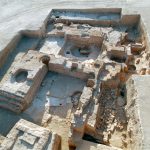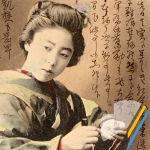This course is an introduction to the religion of the Vikings as it is recorded in Old Norse and Scandinavian literature from the medieval period. You will learn about the different written sources and what they can teach us about pre-Christian religion in northern Europe in the Viking Age. The course surveys the primary collection of Old Norse poetry about the pre-Christian … [Read more...] about Old Norse Mythology in the Sources
Arts and Humanities
Gender, Family, and Social Change in Contemporary South Korea
This course examines the transformation of Korean society beginning around the turn of the 20th century to contemporary times. In particular, it explores how shifting categories of masculinity, and by contrast, femininity have impacted upon, and in turn been influenced by social, cultural, and political change. Using multiple disciplinary lenses, we will critically examine … [Read more...] about Gender, Family, and Social Change in Contemporary South Korea
Recovering the Humankind’s Past and Saving the Universal Heritage
Archaeology is, among human sciences, the discipline with the strongest importance for the rediscovery, but also for the preservation and protection of cultural heritage, as Humankind’s universal patrimony. You will be introduced to the way we ourselves reflect on and are engaged with the study of human past: from the practical and material recovery of ancient traces in the … [Read more...] about Recovering the Humankind’s Past and Saving the Universal Heritage
Words Spun Out of Images: Visual and Literary Culture in Nineteenth Century Japan
In their ambition to capture “real life,†Japanese painters, poets, novelists and photographers of the nineteenth century collaborated in ways seldom explored by their European contemporaries. This course offers learners the chance to encounter and appreciate behavior, moral standards and some of the material conditions surrounding Japanese artists in the nineteenth … [Read more...] about Words Spun Out of Images: Visual and Literary Culture in Nineteenth Century Japan
The Language of Design: Form and Meaning
In this course, critique is defined as a detailed, objective analysis of a work of graphic design and its effectiveness. Critique is an integral part of the making process for designers: it’s not just how we determine if a work of design is or is not successful, it’s how we move our work forward. Critique is also where other voices and opinions can be brought into the … [Read more...] about The Language of Design: Form and Meaning






